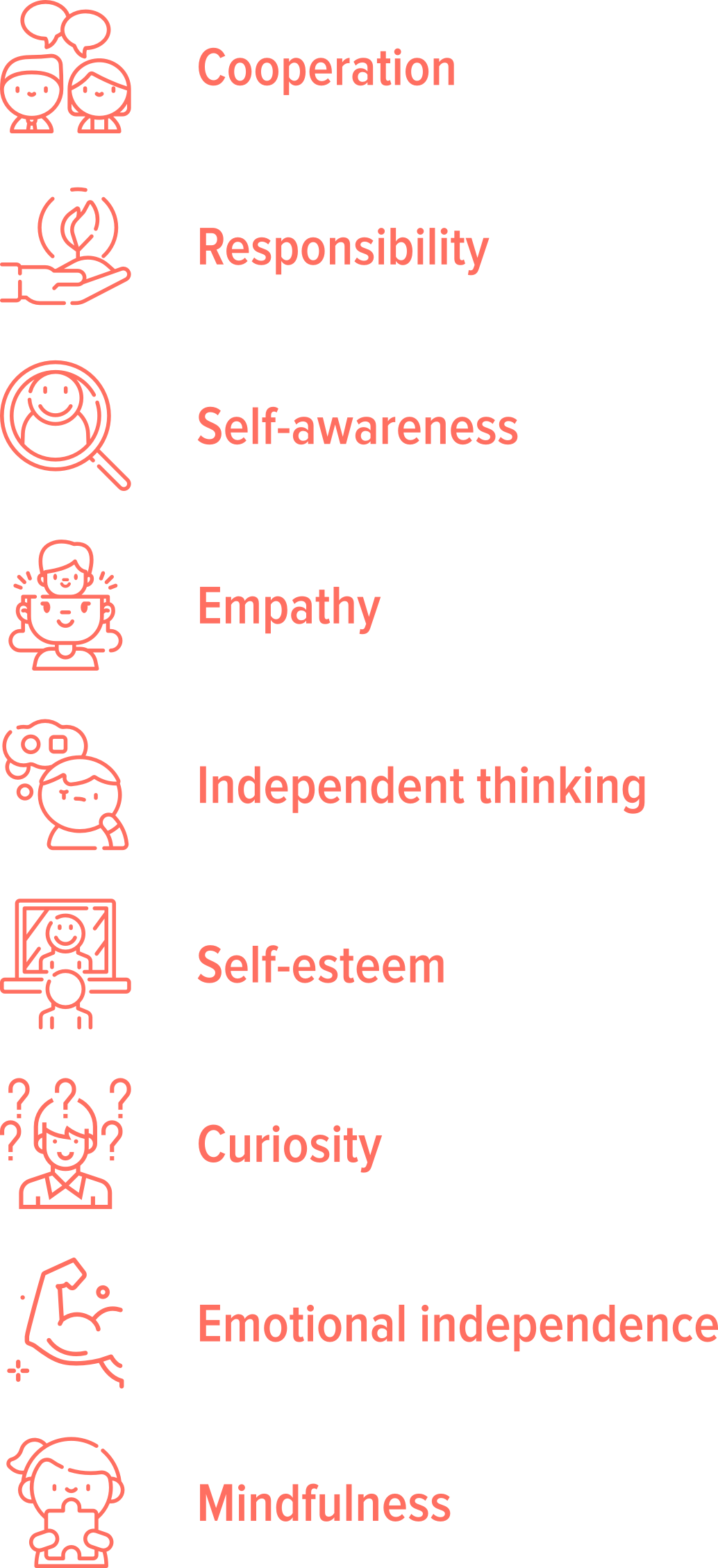Why is it important?
Experience shows that many children in kindergarten and school don’t fulfill their intellectual potential. Achievements are determined by both intelligence and children’s motivation to learn. Psychologists emphasize that the child’s cognitive abilities can be realized and developed only when their emotional and social development is undisturbed. This means that the teacher must be able to recognize different types of motivation and use this knowledge to improve the efficiency of educational work.
The primary goal of the programme is to support all aspects of children’s harmonious development: emotional, mental, cognitive, social, linguistic and motor.In the kindergarten environment it’s extremely important to maintain a proper balance between free play, in which the teacher does not interfere, and education, which should take place in the form of playing, experiencing and discovering. It’s equally significant to give the child an opportunity to express their own emotions and experiences spontaneously.
The programme also aims to interest children in other customs and cultures, not only the English-speaking ones, and to open their minds and encourage tolerance towards different races and religions. An equally important goal of the programme is to make children interested in studying and prepare them for the role of students, especially in bilingual schools.






